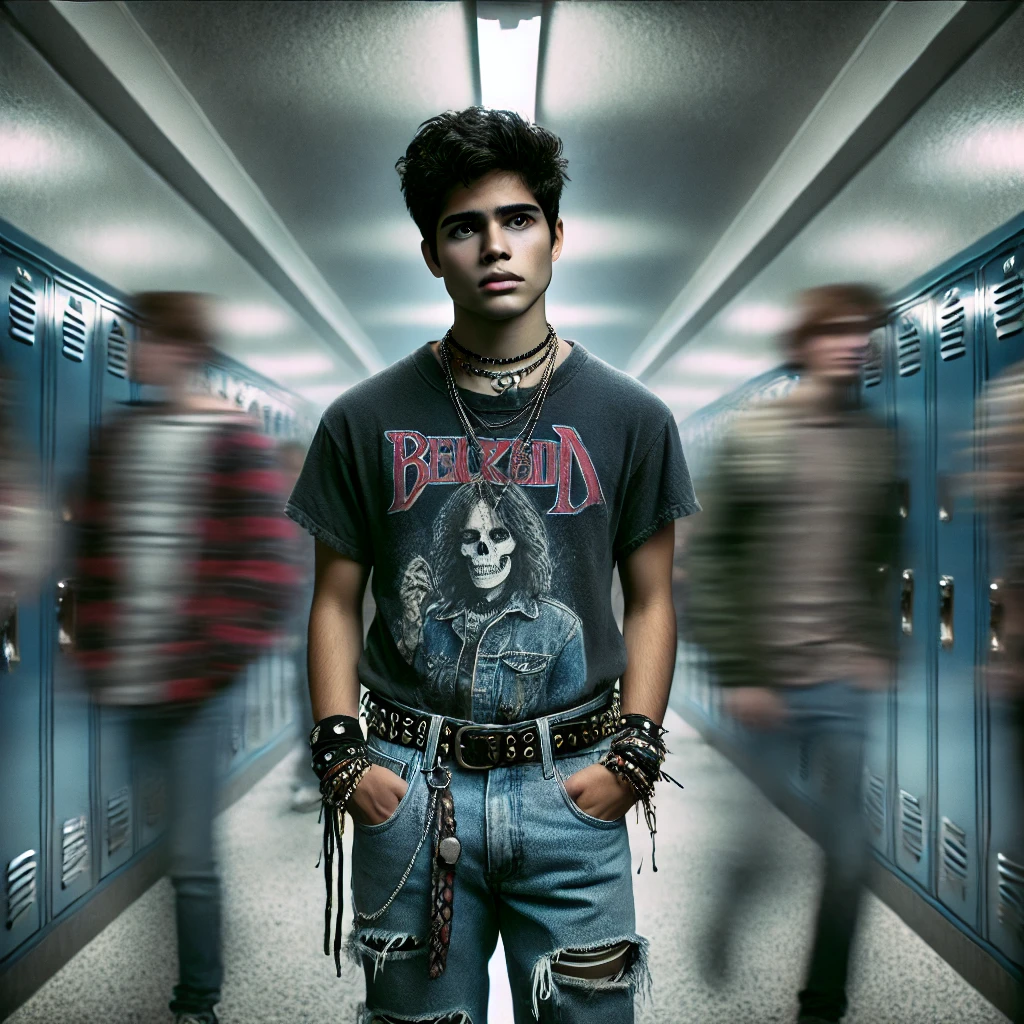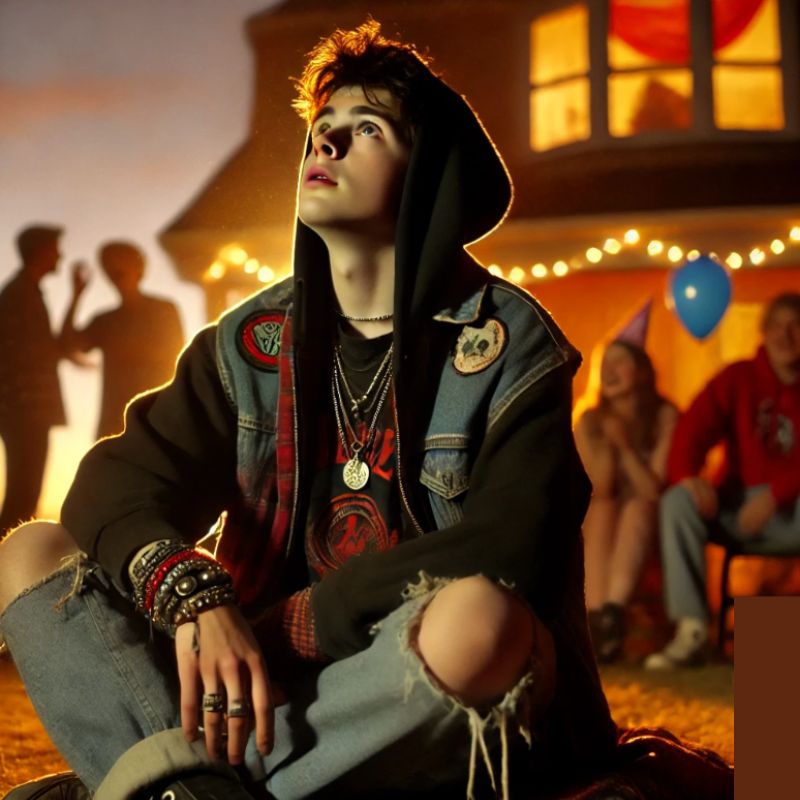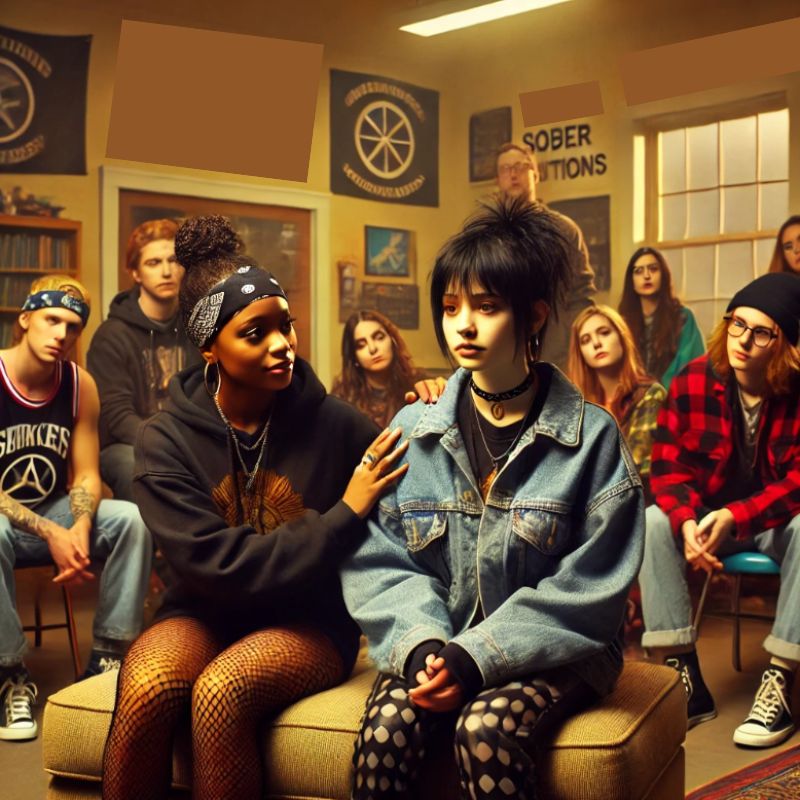
How to be Human Again: Psycho-social Education in Teen Addiction Recovery
Teen addiction recovery through psycho-social education offers a comprehensive approach that addresses the emotional, social, and psychological aspects of substance use disorders. This evidence-based method combines professional counseling with peer support in Alternative Peer Groups (APGs), teaching teenagers essential life skills while building a foundation for long-term sobriety and emotional well-being.
Key Takeaways
- Psycho-social education is a crucial component of effective teen addiction recovery programs
- Alternative Peer Groups (APGs) provide both professional guidance and peer support for teenagers
- Emotional regulation and developing healthy coping mechanisms are essential recovery skills
- Family involvement significantly improves long-term recovery outcomes
- Building recovery capital creates a foundation for sustainable sobriety
Table of Contents
- The Education We Never Wanted: First Steps in Teen Addiction Recovery
- What We’re Really Teaching: Psycho-social Education for Teens
- Learning to Feel Again: Recovery Skills for Emotional Regulation
- The Art of Staying Accountable: Family Therapy in Recovery
- Navigating Triggers Without a Map: Relapse Prevention Strategies
- The Community Classroom: Counseling for Troubled Youth
- Building Something New: Addressing Co-occurring Disorders
- Common Questions About Psycho-social Education
- The Ongoing Education
- Frequently Asked Questions
Something shifts in the room when I tell them I used to sit in those same chairs.
The teenagers – slumped against the walls, arms crossed, radiating that special blend of defiance and fear that I remember so well – straighten up just slightly.
It’s subtle, but I catch it because I used to do the same thing. That tiny movement when you realize the person talking to you about teen addiction recovery isn’t just another adult who read the right books and memorized the right words.
They’ve been where you are. They’ve survived what you’re surviving.
I’m leading a psycho-social education group at the same Alternative Peer Group (APG) where I found my own recovery fifteen years ago.
The irony isn’t lost on me – how I’ve become the very thing I used to roll my eyes at.
But that’s the thing about long-term recovery support: it has a way of transforming our biggest resistances into our greatest strengths.[1]
The Education We Never Wanted: First Steps in Teen Addiction Recovery

At seventeen, I thought I knew everything about addiction.
I could calculate doses with mathematical precision, navigate the complex social dynamics of the drug world, and maintain a carefully constructed facade of normalcy.
What I didn’t know – what none of us know when we’re deep in it – was how to live without all that knowledge.
How to exist in a world that suddenly seems too bright, too loud, too real.
That’s where substance abuse education and recovery skills training come in, though you won’t catch any teenager using those terms (believe me, I’ve tried).
We call it “learning how to do life” – and it’s the missing piece that makes the difference between white-knuckling through sobriety and actually building a life worth staying sober for.
The research backs this up: 89-92% of youth who complete an intensive APG program maintain their sobriety.
But those numbers don’t tell you about the real transformation – the moment a kid realizes they can laugh without being high, or when they discover that continuing care doesn’t mean being stuck in teenage drug treatment forever.[2]
What We’re Really Teaching: Psycho-social Education for Teens

When people hear “psycho-social education in addiction recovery,” they often picture classrooms and worksheets, PowerPoints about brain chemistry and behavioral modification.
And while those elements are part of substance abuse education, what we’re really teaching is how to be human again.
It’s about providing recovery skills training and relapse prevention education in a way that’s relevant and engaging for teens.
“Psycho-social education isn’t about PowerPoints on brain chemistry – it’s about teaching teenagers how to be human again after addiction.”
Here’s what that looks like in practice:
- Understanding the enemy we’re fighting (and it’s not just drugs)
- Developing coping skills for addiction recovery
- Building tools for navigating a world that suddenly seems foreign
- Learning emotional regulation in recovery
- Creating a new relationship with our own minds[3]
Learning to Feel Again: Recovery Skills for Emotional Regulation
Now, I watch other teenagers go through that same process of emotional awakening.
Last week, during a group session, one of our newest members broke down while sharing about his little sister’s birthday party – the first one he’d attended sober in three years.
He started describing the cake, of all things, and suddenly stopped mid-sentence, overwhelmed by the simple joy of remembering every detail: the way the candles flickered, his sister’s gap-toothed smile, the off-key harmony of the birthday song.
“I didn’t know,” he said, wiping his eyes, “that memories could be this clear.”
That’s the thing about emotional sobriety that no textbook can fully capture – those moments when the fog lifts and life comes rushing back in technicolor.
Sometimes it’s beautiful, sometimes it’s overwhelming, but it’s always real.
This raw reconnection with genuine feeling – learning to sit with it, move through it, even embrace it – is part of what we’re teaching in Alternative Peer Group education.
It’s what makes APGs different from traditional teenage drug treatment approaches.[4]
The Art of Staying Accountable: Family Therapy in Recovery
Accountability in addiction recovery isn’t just about staying clean.
It’s about learning to be honest when everything in you wants to hide.
It’s about showing up when every instinct says to run.
It’s about letting people see you – really see you – when you’ve spent years perfecting your invisibility.
Family therapy for recovery plays a crucial role here.
When parents engage in family education in addiction recovery alongside their teens, it creates a powerful foundation for healing.

“When parents engage in family education alongside their teens, it creates a powerful foundation for healing that strengthens the entire recovery process.”
I see it in action every day: teenagers learning to hold each other accountable with a kind of fierce love that adults can’t quite replicate.
They call each other out on their BS because they recognize it – they’ve used the same excuses, told the same lies.[5]
Navigating Triggers Without a Map: Relapse Prevention Strategies
The first time I felt triggered after getting sober, I thought I was losing my mind.
The craving hit me like a physical force, and none of the coping skills I’d learned in treatment seemed real enough or strong enough to help.
What saved me wasn’t a worksheet about trigger management – it was having people I could call who would say, “Yeah, I remember that feeling. Let me tell you how I got through it.”

“What saved me wasn’t a worksheet about trigger management – it was having people who could say, ‘I remember that feeling. Let me tell you how I got through it.'”
Now, when I teach relapse prevention strategies and dealing with cravings, I start with that story.
Because while the science of trigger management is important (and yes, we do teach that), what matters more is knowing you’re not alone in the fight.[6]
The Community Classroom: Counseling for Troubled Youth
APG psycho-social education components create something unique: a learning environment where education happens through experience rather than instruction.
Where peer support in addiction recovery becomes a daily reality, and every social interaction is an opportunity for growth.
Where parents learn alongside their kids, discovering new ways of communicating and connecting.
The role of peer support in an APG goes beyond just sharing experiences.
It’s about building a recovery community that understands both the struggles and the possibilities of recovery.
This combination of professional guidance and peer support helps minimize relapse in ways that traditional counseling for troubled youth alone often can’t match.[7]
Building Something New: Addressing Co-occurring Disorders
Building recovery capital sounds like an academic term (and it is), but what it really means is creating a life that’s strong enough to support sobriety.
It’s about addressing co-occurring disorders in addiction while developing healthy coping mechanisms.
It’s about finding purpose that’s bigger than getting high.
It’s about learning to trust the process, even when it feels impossible.
I watch it happen every day: teenagers who came in broken and defensive transforming into leaders and mentors.
Parents learning how to support without enabling, how to set healthy boundaries while maintaining connection.
Communities of healing growing stronger with each new member.[8]
Common Questions About Psycho-social Education
As both a former APG member and current counselor, here are answers to questions I frequently hear:
What’s the difference between psychoeducation and therapy? While therapy focuses on processing emotions and experiences, psychoeducation provides practical knowledge and skills for recovery. In APGs, we combine both approaches – you’re learning about addiction while also working through your personal challenges.
What should I know about enabling behavior? Enabling often comes from a place of love but can actually hinder recovery. Through family therapy for recovery, we help parents recognize the difference between supporting and enabling their child’s recovery journey.
How can I set healthy boundaries with someone in addiction? Setting boundaries is crucial for both the person in recovery and their loved ones. We teach specific techniques for establishing and maintaining boundaries while preserving relationships.
Where can I find support for families of addicts? APGs provide comprehensive family support through education, counseling, and peer support groups. Many families find that connecting with others who understand their experience is invaluable for their own healing.
The Ongoing Education
Back in the group room, I watch the subtle shifts happening around me.
The teenager who started the session slumped against the wall is now sitting up, engaged in the discussion.
The parent who came in with tears in her eyes is nodding along with someone else’s story, finding hope in shared experience.
This is what psycho-social education really looks like: not just learning about recovery, but learning how to live.
It’s a process that never really ends – thank God for that.
Because every day I spend teaching others reinforces my own recovery, reminds me of where I came from and why I stay.[9]
“This is what psycho-social education really looks like: not just learning about recovery, but learning how to live.”
If you’re reading this – whether you’re a teenager struggling with substance use, a parent searching for answers, or a professional looking to understand the APG model better – know that there’s a place for you in this community.
The education you need isn’t just about staying sober. It’s about building a life that makes sobriety worth it.
Frequently Asked Questions
What makes teen addiction recovery different from adult treatment programs? Teen addiction recovery programs like APGs are specifically designed to address the unique developmental needs of adolescents. They incorporate age-appropriate psycho-social education, peer support, and family involvement, while acknowledging the importance of academic support and identity formation during this critical developmental stage.
How do Alternative Peer Groups help with relapse prevention? APGs provide comprehensive relapse prevention support through a combination of professional counseling, peer accountability, and real-life skill building. Teenagers learn to identify triggers, develop healthy coping mechanisms, and build positive social connections with sober peers, creating multiple layers of protection against relapse.
Can psycho-social education help with co-occurring disorders? Yes, effective psycho-social education addresses co-occurring disorders by teaching teenagers to understand the relationship between their mental health and substance use. Through targeted education and skill-building, teens learn to manage symptoms of anxiety, depression, or trauma while maintaining sobriety.
What role does family therapy play in teen addiction recovery? Family therapy is essential for sustainable teen addiction recovery. It helps repair damaged relationships, improves communication patterns, and teaches family members how to support recovery without enabling. When parents learn alongside their teens, it creates a recovery-supportive home environment that significantly improves long-term outcomes.
How long should a teenager stay involved in counseling for addiction? Recovery is not a quick process, especially for teenagers. Research suggests that longer engagement with support services leads to better outcomes. Most teens benefit from at least 12-24 months of active involvement in an APG or similar recovery support program, with continued connection to the recovery community beyond that time frame.
Ready to learn more about Alternative Peer Groups or find one in your area? Contact the Association of Alternative Peer Groups today for a complementary 15-minute consultation. Together, we can build a foundation for lasting recovery.
[1] When I say “resistance,” I mean the kind that kept me alive in active addiction but nearly killed me in recovery. Funny how our survival mechanisms work that way – what protects us in one context becomes the very thing we need to overcome in another. The clinical term is “maladaptive coping strategies,” but that doesn’t quite capture the visceral reality of it.
[2] These statistics come from preliminary unpublished research, but they align with what I’ve witnessed over years of working in APGs. The numbers matter because they give us hope, but the real story is in the daily victories that can’t be quantified.
[3] The technical term for this is “cognitive restructuring,” but I prefer to think of it as learning to be friends with your own mind after being at war with it for so long.
[4] Emotional regulation in recovery isn’t just about managing negative emotions – it’s about learning to tolerate positive ones too. That’s something they don’t always tell you in the clinical literature.
[5] Accountability in APGs works differently than in traditional treatment settings because it’s built on shared experience rather than authority. The technical term is “peer-based recovery support,” but we just call it “keeping it real.”
[6] The neuroscience of triggers is fascinating (ask me about dopamine pathways sometime), but what matters more is the human experience of learning to ride them out.
[7] This transformation from recipient to provider of support is what we call “helper therapy principle” in the clinical world. In real life, we just call it growing up.
[8] Recovery capital includes social, physical, human, and cultural capital. But at its core, it’s about building a life that’s stronger than your addiction.
[9] And that’s the real secret of recovery: the education never stops. We keep learning, growing, and teaching others, because that’s what keeps us alive.
